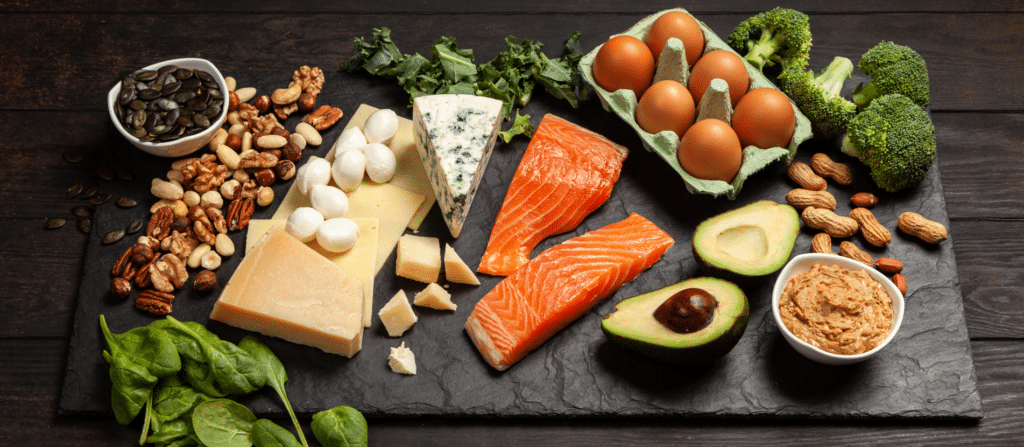- May 27, 2024
- Aws Al-Ani
- Uncategorized
Understanding Inflammation and Diet
Inflammation is a natural response of the body to protect itself from harm. It can be categorized into two types: acute and chronic. Acute inflammation is a short-term response that occurs following an injury or infection, where the immune system releases white blood cells to protect the area. On the other hand, chronic inflammation is a long-term response where the immune system continues to fight, even when there are no foreign invaders to attack. This can lead to the immune system attacking healthy cells, tissues, and organs.

The Role of Diet in Managing Inflammation
Diet plays a significant role in managing inflammation. Certain foods are known to either promote or inhibit the inflammatory response. For instance, diets high in refined carbohydrates can trigger inflammation due to high insulin levels. On the contrary, diets rich in antioxidants and polyphenols, protective properties found in plants, or omega-3 fatty acids can help reduce inflammation.
The Anti-Inflammatory Low Carb Diet
An anti-inflammatory low carb diet is a dietary approach that combines the principles of a low carb diet and an anti-inflammatory diet. This diet emphasizes on consuming foods that are low in carbohydrates and have anti-inflammatory properties. It includes foods like meat, chicken, eggs, fatty fish, avocados, nuts and seeds, olives and olive oil, and low-starch vegetables.
The reduction in carbohydrate intake allows for a higher proportion of healthy fats from foods like animal fat, eggs, nuts, seeds, olive oil, and avocados, which are staples of the anti-inflammatory diet. This diet aims to keep the carbohydrates between under 20% of the day’s total calories, which is lower than the average diet that is typically 50% carbohydrates or more.
By following an anti-inflammatory low carb diet, you can manage inflammation in your body and potentially reduce the risk of chronic diseases associated with inflammation. This diet not only provides the benefits of a low-carb diet but also incorporates the anti-inflammatory benefits of consuming meat, chicken, eggs, and healthy fats from animal sources.
The Basics of a Low Carb Diet
A low carb diet is a dietary approach that limits the intake of carbohydrates, primarily found in sugary foods, pasta, and bread. Instead of eating carbs, you focus on protein-rich whole foods and vegetables. A typical low carb diet usually contains less than 26% of total daily calories from carbs. For those following a 2000-calorie diet, this equals fewer than 130 grams (g) of carbs per day.

Foods to Include and Avoid
In a low carb diet, you are encouraged to eat meat, fish, eggs, non-starchy vegetables, and natural fats like butter. Foods to avoid include sugar and starchy foods like bread, pasta, rice, beans, and potatoes. Even higher carb foods like fruits, starchy vegetables, and whole grains can fit into some low carb diets in moderation.
Learn more
Benefits of a Low Carb Diet
Low carb diets have been associated with several health benefits. People often use them to support weight loss and manage blood sugar levels. When you avoid sugar and starches, your blood sugar tends to stabilize, and the levels of the fat-storing hormone insulin drop, which may make it easier to burn fat stores in the body. In addition, the higher protein intake and presence of ketones (if eating very low carb) may make you feel more satiated, thereby naturally reducing food intake and promoting weight loss.
Creating Your Anti-Inflammatory Low Carb Diet Plan
Creating an anti-inflammatory low carb diet plan involves tailoring your food choices to your personal preferences, health goals, and lifestyle. This diet plan focuses on consuming foods that are low in carbohydrates and have anti-inflammatory properties. It includes foods like fatty fish, red meat, chicken, eggs, avocados, nuts and seeds, olives and olive oil, and low-starch vegetables.

Meal Planning and Preparation
Meal planning is a crucial part of a successful diet plan. Start by making a list of anti-inflammatory, low-carb foods that you enjoy. Then, plan your meals around these foods. Include a variety of foods to ensure you’re getting a wide range of nutrients.
Meal preparation can also help you stick to your diet plan. Prepare meals in advance to save time and ensure you always have healthy options available. Consider batch cooking or using a slow cooker to make meal prep easier.
Tips for Success
Here are some tips to help you succeed with your anti-inflammatory low carb diet plan:
Sustaining Your Diet and Lifestyle Changes

The Importance of Consistency and Long-Term Commitment
Adopting an anti-inflammatory low carb diet is not a short-term fix but a lifestyle change. It requires consistency and a long-term commitment to reap the benefits. This diet plan focuses on consuming foods that are low in carbohydrates and have anti-inflammatory properties. It’s not just about losing weight, but also about improving overall health and reducing the risk of chronic diseases.
Handling Challenges
Challenges such as dining out or dealing with cravings can be difficult when following a specific diet plan. Here are some tips to handle these challenges:
Regular Exercise and Stress Management
In addition to following an anti-inflammatory low carb diet, regular exercise and stress management are crucial for overall health. Regular physical activity can help boost your metabolism and support weight loss. Stress management techniques such as meditation, deep breathing, and yoga can help maintain a balanced lifestyle.
Remember, it’s important to consult with a healthcare professional before starting any new diet plan to ensure it’s suitable for your individual health needs.
Learn about how a Low Carb Diet can help a Fatty Liver
Interested In Speaking To a Low Carb GP?
We are more than happy to assist you on your journey, feel free to book an appointment with us using the button below:
Thank You for Reading!
References:
Understanding Inflammation and Diet:
- https://www.health.harvard.edu
- https://theketominimalist.com
- https://healthyeating.com
- https://www.eatingwell.com
The Basics of a Low Carb Diet:
- https://www.eatingwell.com
- https://theketominimalist.com
- https://healthyeating.com
- https://microsoftstart.msn.com
- https://www.dietdoctor.com
- https://www.healthline.com
- https://www.mayoclinic.org
Creating Your Anti-Inflammatory Low Carb Diet Plan:
- https://www.eatingwell.com
- https://theketominimalist.com
- https://healthyeating.com
- https://www.healthifyme.com
Sustaining Your Diet and Lifestyle Changes:
- https://www.eatingwell.com
- https://theketominimalist.com
- https://healthyeating.com
- https://www.niddk.nih.gov
- https://www.health.harvard.edu
- https://longevitylive.com
- https://www.healthline.com
- https://www.psychologytoday.com

